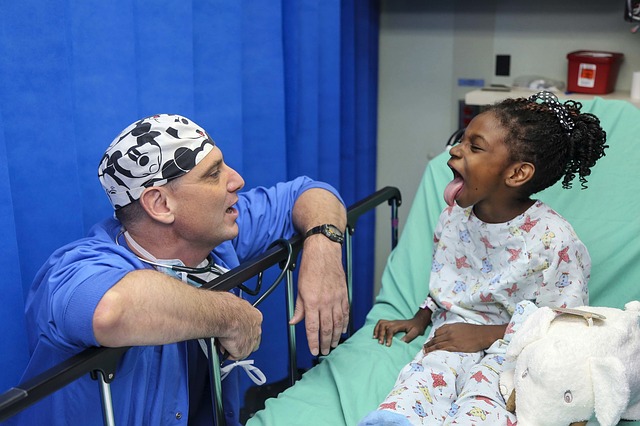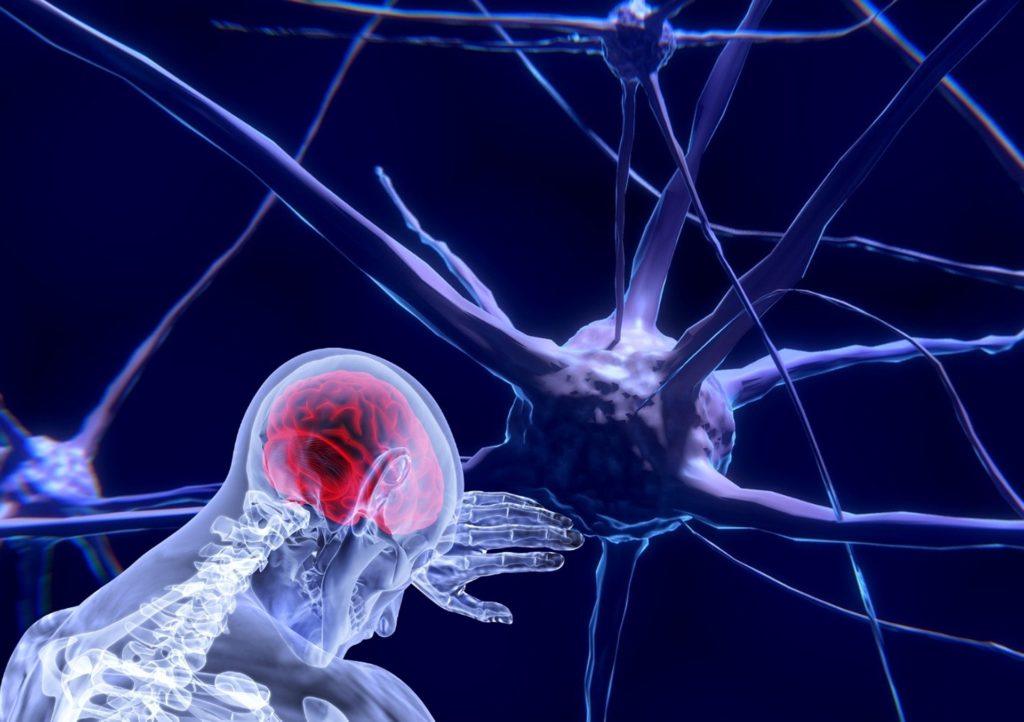TRAINING FOR TEACHERS
FIND OUT MORETRAINING FOR TEACHERS
Euroform RFS designs and implements courses to support teachers and trainers in their lifelong learning.
The courses, in both attendance and remote, are carried out in Italy or abroad, and they mainly aim at introducing innovative teaching methods that favour the digital transformation of Italian schools and training agencies.
COURSES
NEW TEACHING AND LEARNING METHODOLOGIES – MOODLE PLATFORM – 60 H

Targets
The training course on new educational technologies aims at enabling the teachers to carry out their own activity being fully aware and making the most of the possibilities offered by IT.
Knowing how to use technologies for teaching is not only mastering the tools: it also means above all making use of new pedagogical-didactic paradigms that are suitable for a school of the third millennium. For this reason, the course is introduced with a first part on the new teaching-learning paradigms, to move then on to the presentation of the Moodle platform, its tools and its functionalities: starting from the platform login, you will learn how to customise the course homepage and how to insert content and activities.
General programme
1) The teaching-learning process in the 21st century – 14 h
The traditional teaching method – 4 h
Training needs in the society of knowledge – 2 h
The new teaching models and paradigms – 4 h
The method for projects in traditional contexts – 2 h
Problem based learning – 2 h
2) The introduction of new technologies for education and learning – 46 h
The “technological revolution” in training contexts – 4 h
Telematics tools at the service of learning: potential and criticality – 6 h
Interactive exchange through the network – 6 h
New technologies: Moodle, tradition and innovation – 30 h
Recipients
All teachers of schools of all levels who want training on the subject of teaching assisted by new technologies.
Materials and Technologies
The course will be based on the application of two teaching methods associated with the two sections of the course. The lectures will be organised for the first part, mostly theoretical, while the activities related to Moodle technologies will be delivered through a Blended Learning mode. The course will be based on a didactic mix (theoretical lessons, methodologies, in-depth studies, workshops and tests / simulations on the Moodle platform, debates) that will constitute a solid and secure base on which it would be possible to build a modern, effective and involving teaching.
The technologies used consist of the Moodle platform “e-euroform” on which a course for teaching will be created that enables students to practice with simulations. The lecturers will use the PCs connected to the Internet and peripherals available in the Multimedia Lab of the Training Agency. The materials used will be handouts created by the teaching staff together with the contents that will constitute the course on the platform.
GRAPHIC PROCESSING AND BUSINESS MANAGEMENT TOOLS ON THE WEB – 80 H

Targets
The course aims at transferring to the teachers the basic skills to use the main tools of graphics and management of Web platforms.
Teachers will acquire knowledge in the educational use of some common software. Indeed, the course aims to transmit skills in the use of the main Microsoft Office applications (Word, PowerPoint) and document and image management (PDF, Photoshop) to acquire skills in structuring materials developed for communication purposes (School newspaper, website management of the Institution).
The use of the Word Processor allows the teachers a faster and more orderly realisation of verifications, of programming, of minutes, of final reports. The interesting thing is that works can be stored on the PC or on another support, in order to use them, with the appropriate modifications, on other occasions.
PowerPoint is a programme designed to create electronic presentations, but more and more teachers are using it to prepare and propose personalised and captivating educational activities and content thanks to the possibility offered by the application to use animations, music, voices, sounds, colours, images, photographs, videos.
Adobe Photoshop is a specialised tool in the processing of photographs and, more generally, of digital images. This programme is able to carry out professional quality retouching to images, offering enormous creative possibilities thanks to the several filters and tools that allow you to emulate the techniques used in photo labs for image processing, painting and drawing techniques.
The course aims at learning this main bitmap graphics software with the goal of enabling the student to acquire good autonomy in the use of the programme, starting from the basic functions.
General programme
1) Use of Microsoft Word applications – 22 h
Working with documents, customising the interface, using the online guide – 4 h;
Creation of a document: insert, select and modify the text – 4 h;
Formatting: format a text, format a paragraph, use of styles – 6 h;
Objects: create and format a table, graphic objects – 4 h;
Mail merge: preparation of the main document, selection of the distribution list
Generation of enclosed document – 2 h;
Print preparation: setup, control and printing – 2 h.
2) PowerPoint – 14 h
Formatting slides – 4 h;
The different types of slides – 2 h;
The structure models and the slide scheme – 2 h;
Animations and PowerPoint printing – 2 h;
The display of the presentation – 2 h;
Insertion of music, voices, colours, images – 2 h.
3) What operations is it possible to perform with Adobe Reader? – 8 h
Save, view and search for a PDF – 1 h;
Fill in forms and sign a PDF – 1 h;
Manage certificates (protected PDFs) – 1 h;
Share documents – 1 h;
Create a PDF file – 1 h;
Convert a Word file to PDF – 1 h;
Add comments to PDF files – 1 h;
Participate in a review – 1 h.
4) Photoshop – 20 h
Principles of bitmap graphics: the digital image – 2 h;
Adobe Photoshop potential – 2 h
The programme interface: menu, palette – 2 h;
File management and structure: pixel and resolution – 1 h;
Image processing tools: toolboxes, selections – 1 h;
Rotate, cut, mirror or set the size of an image – 1 h;
Bitmap drawing tools: brushes, airbrushes, rubber – 1 h;
The stamp tool for photo editing – 1 h;
Vector drawing tools: the pen and the “tracks” panel – 1 h;
Layers management – 1 h;
Text management – 1 h;
Image adjustment functions: brightness, contrast, saturation, curves – 1 h;
Colour management: main colour methods in use – 1 h;
The effects: filters, layer styles – 1 h;
Masks, channels and related instruments – 1 h;
Working with guides and rulers – 1 h;
Formats: tiff, jpg, gif, psd, images exported for the web, pdf, etc. – 1 h.
5) Web activity management – 16 h
What is a website – 2 h;
How website pages are made visible – 4 h;
What it takes to manage the site – 6 h
Maintenance of the pages – 4 h.
Recipients
All teachers of schools of all levels who wish to acquire skills in using the most common software applications for managing school activities and the institutional website.
Materials and Technologies
To promote the practical learning of the software covered by the course, the lessons will take on a workshop form and will be held in the Multimedia Lab of the Training Agency, where the teachers work directly with the software during the lesson. The lecturers will prepare the teaching materials or slides used in the lectures ad hoc.
EUROPEAN DESIGN FOR SCHOOLS – 70 H

Targets
The course aims to introduce European planning. The participants, through practical exercises, will acquire the technical tools for the realization of project ideas, through the design of a project draft, the search for international partners and the drafting of the budget. At the end of the course, participants will have specific skills for identifying the most appropriate forms of access to community financial resources, and for the formulation of project ideas in step with European programmes and the needs of the educational institution to which they belong.
Therefore, the course aims at contributing to the training of a teacher able to use the tools prepared by the European Union and to apply them for participation in European competitive examinations.
The training course will include extensive use of exercises and case studies as well as modules on the panorama of funding opportunities, in particular the Europe 2020 Strategy and the new planning.
At the end of the course, these figures will be able to operate in territorial institutional contexts to activate, through European projects and funding, development processes, integrating the various resources and opportunities at the regional, national and European level.
General programme
- Legal order, institutional framework, and economic system of the European Union – 6 h
- The EU policies – policies addressed to the European Projects and the related implementation tools – 6 h
- Direct and indirect EU funding in support of its policies – presentation of the opportunities offered by the EU – 10 h
- European policy on innovation and research – 10 h
- The Project Cycle Management – 4 h
- European Projects Principles and Techniques – 6 h
- European projects and funds for schools – the new European planning 2014-2020 and dedicated programmes – 4 h;
- Budget management and reporting – 4 h;
- English for European Projects – sectorial English for drafting, management, development -20h
Recipients
All teachers of schools of all levels who want training on European planning methods.
Materials and Technologies
The teaching methodology is interactive. A first phase of lectures will be followed by a second phase dedicated to design workshops: the participants, taking advantage of existing or concluded competitive examinations, will have to carry out a real project to present in front of the class and which will be the subject of discussion. The teachers will follow the entire drafting phase for the completion of the project proposal. The course includes interactive training to stimulate the preparatory skills to trigger a process of ongoing training, with continuous exercises. Innovativeness involves an operational and concrete form, with widespread use of active techniques, experiences, simulations, etc. to ensure a high level of transferability to work and acquisition of transversal skills. The users will be continuously stimulated to implement the design and work simulating real situations. They will carry out searches for documents and announcements to learn how to find information on possible opportunities, transform ideas into project drafts, learn about forms related to programmes and competitive examination, filling in concretely, detailing the project and giving form and structure to the actions. The English lab will guarantee the recognition of the main terms of the sector. The use of ICT will be promoted to enable the overcoming of barriers and the transmission of information.
TEACHING AND GOOD PRACTICE STRATEGIES IN MULTICULTURAL CLASSES – CLASS OF COMMUNICATION AND MEDIATION COURSE – 50 H

Targets
The main educational goal is to produce knowledge and skills, of a multidisciplinary and theoretical-practical nature, on the several aspects related to the reception and scholastic integration of foreign students. For decades, Italian society has been set as multi-ethnic and multicultural, characterised by the coexistence of people of different origins and ethnicity, not only in large metropolitan areas. This simple demographic fact naturally entails problems of coexistence and large-scale integration, and the reality of school life increasingly reflects it.
The educational and relational management of students coming from cultures that are different from the Italian one is entrusted to a teacher who often is not supported by adequate mediation tools and resources. This lack of support can give rise to difficulties of various kinds in the daily exercise of the teaching profession: from the management of the group – class and individual students to the effective planning and implementation of training interventions in the individual disciplines.
The upgrading course aims to provide general knowledge and intervention tools to deal effectively with the challenge of training in a multi-ethnic and multicultural context. The course purpose will be to support mediation in the classroom in order to favour the socialisation and integration of foreign students and their families.
The teacher will be able to act as a bridge between the immigrant pupil and the school world -of which the latter will be part- to deal with problems related to the inclusion of foreign students and new educational, organisational and teaching needs. For this reason, it is necessary for the teacher to be aware of his or her duties and role. A basic education is therefore useful and necessary to:
– Provide an adequate support to teachers regarding the reception and inclusion of students from other cultures.
– Get teachers to understand the initial difficulties, behaviours and competences of immigrant students, encouraging their integration, learning and subsequent academic success.
– Facilitate cultural dialogue and relationships between immigrant student families and teachers.
General programme
- Analysis of the needs and resources of the mediation beneficiary – 24 h
Understand needs and requirements of the immigrant in relation to the specific migration path and project – 6 h.
Identify and distinguish any discomfort due to the experience of the migrant, to the scarce linguistic knowledge … – 6 h.
Recognise cultural, personal and professional characteristics of the immigrant as resources to exploit in the various contexts of reference – 6 h;
Translate the individual’s needs and resources into intervention programmes – 6 h.
- Orientation of the relation between the immigrants / services – 12 h
Transfer to the immigrant cognitive elements of the historical-cultural and social reality of Italy and Europe – 4 h.
Explain models and rules of public and private utilities – 4 h;
Make the immigrant aware of his/her rights and duties in relation to the social context of reference – 2 h;
Transmit to the teacher elements of knowledge of the immigrant’s culture – 2 h.
- Cultural mediation – 14 h
Understand the cultural codes of the subjects involved in the communication relationship – 4 h.
Facilitate the exchange between the different parties in order to prevent the emergence of misunderstandings and conflicts – 6 h.
Promote and enhance opportunities for encounters between different cultures – 2 h.
Support the school organisational context in processes of services adaptation – 2 h.
Recipients
The course is intended for teachers and aspiring teachers of the secondary school of lower and upper levels (tenured, certified, non-certified), of any discipline (even special needs teachers).
Materials and Technologies
The lectures will be held in classrooms to acquire theoretical knowledge through a model-based learning style. Depending on the different phases and contents, the lessons will be more interactive, within which the teacher acts as a facilitator of the debate and discussions with and between the participants.
Participants will be able to deal with practical case studies that represent examples of application of theoretical concepts to concrete reality, solving problems and finding effective solutions.
The lecturers will prepare the materials ad hoc; Classroom lessons will be supported by the use of video projector, whiteboard and PC.
FIRST AID IN PaEDIATRIC AGE – 24 H

Targets
The purpose of the course is to put the teachers of primary and secondary schools of lower level in the condition to carry out essential and unrestrainable manoeuvres in the case of loss of consciousness, respiratory and cardiac arrest and obstruction by foreign body of their pupils. This course has the main purpose of raising awareness, understanding the seriousness of the situation, being prepared to intervene in the best possible way in the event of classroom accidents.
It is therefore proposed to transmit:
- Knowledge, skills and behaviour sequences in the prevention of cardio-respiratory arrest;
- Early recognition and treatment of respiratory and cardiac arrest;
- Rapid activation of the emergency system (118);
- Treatment of airway obstruction by a foreign body in the new-borns, infants and children;
- Procedures for proper alerting of the Emergency Health Service;
- The signs and symptoms of the most frequent paediatric diseases;
- Appropriate assistance during a health emergency to a child victim;
- Ability to provide first aid.
The teachers will be able to intervene in cases of trauma, high fever, convulsions, burns, insect bites and other dangerous situations.
General programme
The meeting is divided into two phases: the first consists of a lesson on paediatric emergencies; the second consists of a lesson on practical manoeuvres.
The course will follow international guidelines, and provides a theoretical and practical approach, with exercises on mannequins that reproduce the appearance of a baby and a child.
1) The Paediatric First Aid – General instructions – 8 h
Concerning symptoms, how to recognise them and how to behave – 2 h;
Cardiac respiratory resuscitation of the child: prevention, early recognition of cardio-respiratory arrest, alarm, breathing and circulatory support – 4 h;
Recognition and treatment of foreign body airway obstruction – 2 h.
2) The prevention of school accidents – 8 h
The accident in general and the places of school accidents – 8 h
What to do in the event of:
- Poisoning
- Electric shock
- Choking
- Foreign body in eye and ear, cough, epistaxis, fever
- The “domestic” first aid box
- Safety in cars and motorcycles
3) Practical tests – 8 h
Cardio-pulmonary resuscitation (CPR);
Extraction of foreign body manoeuvres;
Use of the aerosol device;
Dressings and bandaging.
Recipients
The teachers in lower level schools: infancy, primary and secondary.
Materials and Technologies
After a first theoretical part supported by the use of Slides, the participants will perform exercises on special paediatric mannequins to practice the techniques of the course.
FOOD EDUCATION – 18 H

Targets
The training courses designed to promote and disseminate food culture and education, are aimed to teachers of Primary Schools of the Province of Cosenza that belong to rural areas. Over there, the topic of food culture is neglected and the phenomenon of many obese children is increased, and with a purpose of lifelong learning, the courses intend to deepen their knowledge on the subject. The intervention is based on a remote learning course (available on the e-Learning “e-euroform”) in order to involve a large number of teachers. The latters who, coming from rural areas, would face serious difficulties (that may be due to absence of connections with public transport; difficulty in moving by their own means; obligation to attend the reference Schools), which would tend to compromise active and widespread participation.
General programme
1) Culture, economy, geography and history: food identity of the people – 2 h
2) Breakfast and snack – 2 h
3) The Food Pyramid as a universal model of nutrition – 2 h
4) Good habits begin in the family – 2 h
5) “In line with the seasons” also for a greater awareness of the balances that regulate our planet – 2 h
6) Mens sana in corpore sano (healthy mind in healthy body) – 2 h
7) Journey through the universe of labels and production chain – 2 h
8) Fruits and vegetables – 2 h
9) Let’s recap: ten golden rules to live healthy – 2 h
Recipients
All teachers of schools of all levels who want training on the subject of teaching assisted by new technologies.
Materials and Technologies
The course will be based on the application of two teaching methods associated with the two sections of the course. The lectures will be organized for the first part, mostly theoretical, while the activities about Moodle technologies will be delivered through a Blended Learning mode. The course will be based on a didactic mix (theoretical lessons, methodologies, in-depth studies, workshops and experiments / simulations on the Moodle platform, debates) that will constitute a solid and secure base on which it is possible to build a modern, effective and involving teaching.
The technologies used will consist of the Moodle platform “e-euroform” on which a course for teaching will be created that enables students to practice simulations. The materials used will be handouts created by the teaching staff together with the contents that constitute the course on the platform.
NEUROSCIENCE IN TRAINING – 36 H

Targets
The current course aims to introduce Neuroscience principles in the educational process. The participants, through theoretical and practical techniques, will acquire the tools for the stimulation of population in lifelong learning to meet their needs in order to enhance their career prospects, reducing the risk of unemployment and social exclusion. Additionally, they will improve their learning techniques, develop new skills and transfer of knowledge of innovative education services. At the end of the course, the participants will be provided with all the necessary tools for the creation and development of basic skills and the flexibility of thinking and expression.
General programme
- The teaching-learning process in the 21st century – 2 h
- The traditional teaching method – 2 h
- The Circus: a powerful tool in training – 4h
- Neural Plasticity as a basic of learning – 3 h
- Lego® Serious Play® – 4 h
- Thought – Emotion – Behavior: the combination in trainer’s and trainee’s attitude – 3 h
- The theatre in training – Role play – 4h
- Emotion – Motivation: Stimulating the capacities of the trainers and trainees – 4 h
- Design thinking – 3 h
- Case – study development – 4-h
- Compilation the abovementioned techniques depending on the case study – 3 h
Recipients
The course is addressed to all adult education trainers and all teachers of lower and upper levels (tenured, certified, non-certified) and of any discipline (even teachers for special needs trainees). There are no required qualifications for attending the course.
Materials and Technologies
The lectures will be held in classrooms to acquire theoretical knowledge based on different tools of stimulation of participants. Depending on the different phases and contents, the lessons will be interactive, within which the teacher acts as a facilitator of the debate and discussions with and between the participants. The coach will use a wide range of tools: Lego® Serious Play®, Circus, Theater techniques which promote interaction, creativity and collaboration and inspire innovation in their future practice
Participants will be able to deal with practical case studies that represent examples of application of theoretical concepts to concrete reality, solving problems and finding effective solutions.
The lecturers will prepare the materials, classroom lessons will be supported by the use of video projector, whiteboard and PC where is needed.
- Email: info@euroformrfs.it
- Tel: (+39) 0984 467735
- Fax: (+39) 06 233232407
